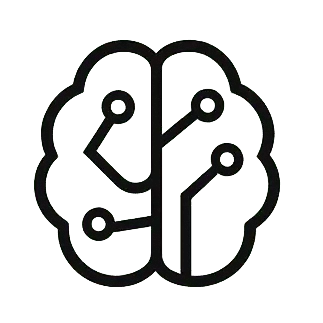Tool Description
NLTK (Natural Language Toolkit) is a leading open-source platform for building Python programs to work with human language data. It provides easy-to-use interfaces to over 50 corpora and lexical resources such as WordNet, along with a suite of text processing libraries for classification, tokenization, stemming, tagging, parsing, and semantic reasoning. It is widely used for teaching and research in natural language processing, computational linguistics, and artificial intelligence, serving as a foundational toolkit for developers and researchers in the field.
Key Features
-
✔
Tokenization (splitting text into words or sentences)
-
✔
Stemming and Lemmatization (reducing words to their root forms)
-
✔
Part-of-Speech (POS) tagging
-
✔
Named Entity Recognition (NER)
-
✔
Parsing (syntactic analysis of sentences)
-
✔
Text classification algorithms
-
✔
Access to a rich collection of linguistic corpora and lexical resources (e.g., WordNet, Penn Treebank)
-
✔
Support for various NLP tasks and experiments
-
✔
Open-source and free to use
Our Review
4.5 / 5.0
NLTK stands as a cornerstone in the world of Natural Language Processing, particularly for Python developers and researchers. Its comprehensive suite of tools and extensive collection of linguistic data make it an invaluable resource for learning, experimenting, and building foundational NLP applications. While it might not always be the fastest choice for large-scale, production-grade deep learning NLP tasks (where libraries like SpaCy or Hugging Face might offer performance advantages), NLTK excels in its breadth of functionality and its role as an educational and research platform. The active community, coupled with excellent documentation and a wealth of examples, ensures that users can quickly get started and delve deep into various NLP concepts. It’s an indispensable tool for anyone looking to understand or implement traditional NLP techniques.
Pros & Cons
What We Liked
- ✔ Extremely comprehensive for traditional NLP tasks.
- ✔ Excellent for educational purposes and academic research.
- ✔ Provides access to a vast array of linguistic corpora and lexical resources.
- ✔ Completely free and open-source.
- ✔ Strong community support and extensive documentation.
- ✔ Easy to integrate into Python projects.
What Could Be Improved
- ✘ Performance can be a bottleneck for very large datasets or high-throughput production systems compared to optimized alternatives.
- ✘ Less focused on modern deep learning NLP models out-of-the-box.
- ✘ Can be memory-intensive for certain operations.
- ✘ Initial data package downloads can sometimes be cumbersome for new users.
Ideal For
Academic Researchers
Data Scientists
Python Developers working on text analysis
Computational Linguists
Educators teaching NLP
Popularity Score
Based on community ratings and usage data.


